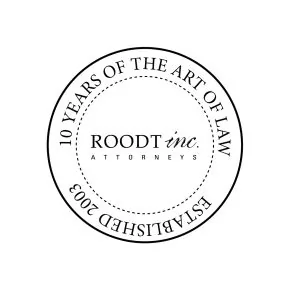Where a manager's unlawful conduct caused the company's business to collapse, the company was the only proper plaintiff and the shareholders had no claim for damages
The decision in Roestorf NO v Johns 2013 (2) SA 459
(KZD) concerned a company that carried on business in the
motorcycle industry and had since gone into liquidation. The
company had three shareholders and three directors.
The plaintiffs in this matter were two shareholders who between
them held 75% of the shares in the company and they were also
directors. The defendant had been appointed as the manager of the
company's business and held 25% of the shares in the
company.
The two plaintiffs were suing the defendant for damages of nearly
R3 million in respect of the decline in the value of their shares
in the company, and the decline in the value of their loan
accounts, as a result of the allegedly fraudulent or negligent
conduct of the defendant in her capacity as manager.
The latter, according to the testimony of witnesses in the
proceedings, had by her misconduct toward the company's major
trading associates, brought about the virtual collapse of the
company's business, with the result that its shares had become
worthless.
The issue of locus standi
The plaintiff's immediate difficulty was to establish that
they had locus standi to sue for such damages.
In this regard the question was whether the wrong allegedly
committed by the defendant had been suffered by them, as
shareholders, or by the company. For if only the company had
suffered the wrong, then the rule in Foss v Harbottle
decreed that the company was the only proper plaintiff.
The court quoted from the summary of the rule in Foss v
Harbottle as expressed in the judgment of the English Court of
Appeal in Prudential Assurance Co Ltd v Newman Industries Ltd
(no 2) [1982] 1 All ER 354, where it was said that–
'(1) The proper plaintiff in an action in respect of a wrong
alleged to be done to a corporation is, prima facie, the
corporation.
(2) Where the alleged wrong is a transaction which might be made
binding on the corporation and on all its members by a simple
majority of the members, no individual member of the corporation is
allowed to maintain an action in respect of that matter because, if
the majority confirms the transaction, cadit quaestio; or,
if the majority challenges the transaction, there is no valid
reason why the company should not sue.
(3) ...
(4) There is also no room for the operation of the rule if the
transaction complained of could be validly done or sanctioned only
by a special resolution or the like, because a simple majority
cannot confirm a transaction which requires the concurrence of a
greater majority.
(5) There is an exception to the rule where what has been done
amounts to fraud and the wrongdoers are themselves in control of
the company. In this case the rule is relaxed in favour of the
aggrieved minority, who are allowed to bring a minority
shareholders' action on behalf of themselves and all others.
The reason for this is that, if they were denied that right, their
grievance could never reach the court because the wrongdoers
themselves, being in control, would not allow the company to
sue.'
In the present case, Lopes J pointed out that the plaintiffs
held a majority of the shares in the company and that there was no
reason why they could not have procured the company to sue the
defendant for the damages that the latter had caused to the
company's business by her conduct.
If that course of action had been followed, the damages would have
been paid into the coffers of the company and, after payment of its
creditors, the residue would have been distributed to the
shareholders as a liquidation dividend.
Lopes J went on to say (at para [16] of the judgment) that
–
Lopes J went on to point out that a further reason for not
permitting the plaintiffs, as shareholders, to sue for damages was
that, if there was insufficient in the company's coffers to pay
all its creditors, the payment to the plaintiffs would have
circumvented the requisite order of distribution on
liquidation.
In the result, Lopes J granted the defendant absolution from the
instance and ordered the plaintiffs to pay the defendant's
costs.
The content of this article is intended to provide a general guide to the subject matter. Specialist advice should be sought about your specific circumstances.

